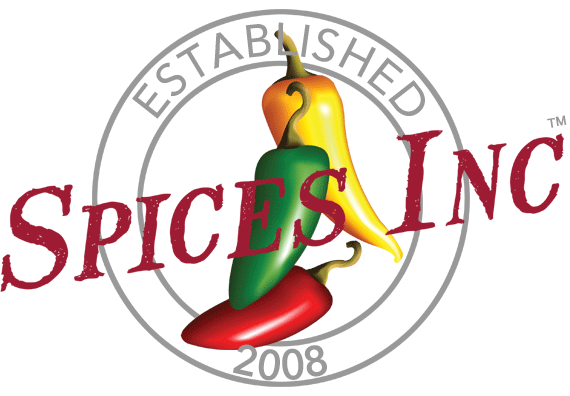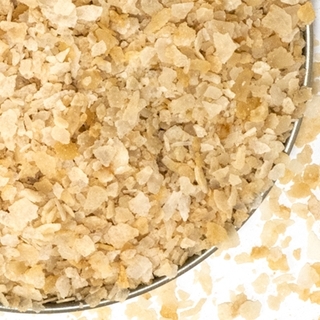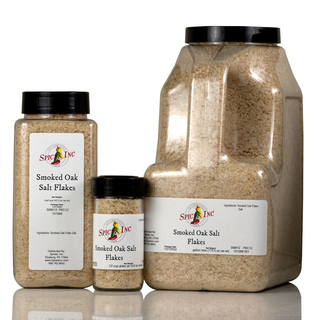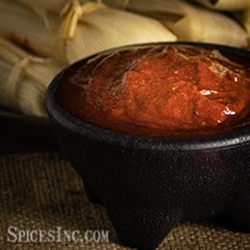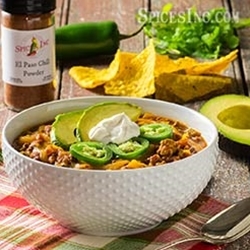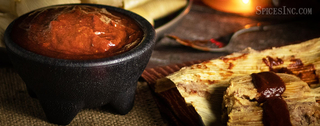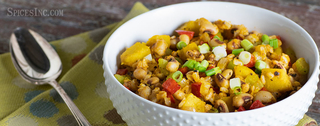Smoked Oak Salt Flakes
Smoked Oak Salt Flakes
Smoked Oak Flake Salt, made from naturally occurring sea salt and pure oak, is also known as oak smoked flaky salt or oak smoked salt.
This product is made when sea salt is pressed with a large, heated roller. This heated roller compresses the crystals into an irregularly shaped flake. The flaked salt is then smoked in a cold-smoking process using bark-free, aromatic hardwood.
Smoked Oak Flake Salt is popular with seasoning companies; BBQ restaurants; food trucks; independent spice shops; butchers; caterers; and manufacturers of meal mixes.
Flavor Profile
Smoked Oak Flake Salt has a smoky, woody flavor over a solidly salty base.
How To Use
Smoked Oak Flake Salt brings additional depth when it’s incorporated into dishes like Red Enchilada Sauce poured over tamales, or Spicy Slow Cooker Chili. It adds a bit of smoky richness in vegetarian Hoppin’ John, normally made with pork hocks. It’s a great way to add crunch and a salty bang to savory dishes like Korean Beef and Broccoli Kebabs or an Arugula and Walnut Salad, but it’s also delicious on sweets and snacks. Try it on your favorite salted caramel, or dust over Cinnamon and Ancho Chile Chocolate Bark or Spiced Almonds.
| Also Called | Oak smoked salt, oak smoked flaky salt |
| Ingredients | Cold smoked sea salt |
| Flavor Profile | Smoky, light woody flavor, salty pop |
| Recommended Uses | Salsas, sauces, marinades, rubs, finishing salt, desserts |
| Cuisine | Global |
| How To Store | Airtight container in a cool, dark place |
| Shelf Life | 1-2 years |
| Country of Origin | USA |
Nutrition Facts
Serving Size1 tsp
Amount Per Serving
Calories0
% Daily Value*
Total Fat0g0%
Saturated Fat0g0%
Trans Fat0g
Polyunsaturated Fat0g
Monounsaturated Fat0g
Cholesterol0mg0%
Sodium2160mg94%
Total Carbohydrate0.0g0%
Dietary Fiber0.0g0%
Total Sugars0.0g
Added Sugars0g0%
Sugar Alcohol0.0g
Protein0.0g0%
Vitamin D0mcg0%
Calcium0mg0%
Iron0mg0%
Potassium0mg0%
*The % Daily Value (DV) tells you how much a nutrient in a serving of food contributes to a daily diet. 2,000 calories a day is used for general nutrition advice. These values were calculated and therefore are approximate. For more accuracy, testing is advised.
